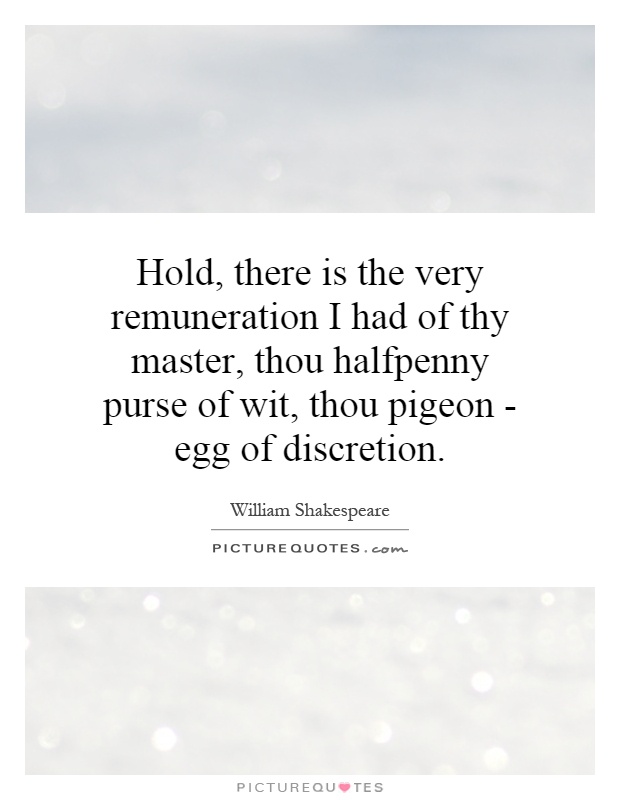Hold, there is the very remuneration I had of thy master, thou halfpenny purse of wit, thou pigeon - egg of discretion

Hold, there is the very remuneration I had of thy master, thou halfpenny purse of wit, thou pigeon - egg of discretion
The quote “Hold, there is the very remuneration I had of thy master, thou halfpenny purse of wit, thou pigeon-egg of discretion” is from William Shakespeare’s play “The Merry Wives of Windsor”. In this scene, the character Falstaff is speaking to his servant, Robin, and expressing his disappointment in him. The quote is a scathing insult, as Falstaff is essentially calling Robin foolish and lacking in intelligence.The use of the word “remuneration” in the quote suggests that Falstaff had certain expectations of Robin, which he feels have not been met. By referring to Robin as a “halfpenny purse of wit” and a “pigeon-egg of discretion”, Falstaff is mocking his servant’s lack of intelligence and poor judgment. The comparison to a halfpenny purse and a pigeon egg implies that Robin is small-minded and insignificant.
Shakespeare often used insults and wordplay in his plays to create humor and add depth to his characters. In this case, Falstaff’s insult towards Robin reveals his own arrogance and sense of superiority. Falstaff sees himself as a clever and witty individual, and he looks down on Robin for not measuring up to his standards.
The quote also highlights the class differences and power dynamics at play in the play. Falstaff, as a nobleman, feels entitled to belittle and insult his servant without consequence. Robin, as a lower-class individual, is expected to accept and endure such treatment.
Overall, the quote “Hold, there is the very remuneration I had of thy master, thou halfpenny purse of wit, thou pigeon-egg of discretion” is a prime example of Shakespeare’s skill in crafting insults and showcasing the complexities of human relationships and social hierarchies in his plays. It serves as a reminder of the power of language and the ways in which words can be used to both uplift and tear down others.












 Friendship Quotes
Friendship Quotes Love Quotes
Love Quotes Life Quotes
Life Quotes Funny Quotes
Funny Quotes Motivational Quotes
Motivational Quotes Inspirational Quotes
Inspirational Quotes